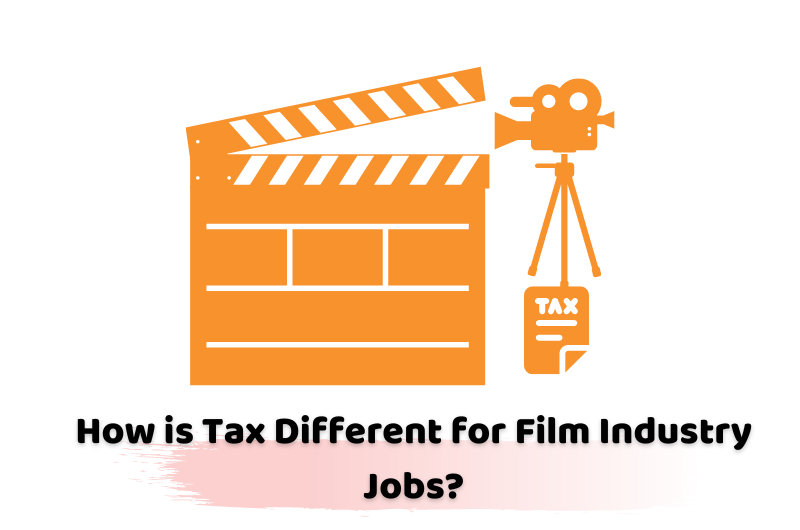A big factor about the film industry jobs is also relevant to self-employment. This is especially related to you if you are that one individual who is working from the scenes of the camera. This is really different from the employed individuals who have a clear employment status because it is defined clearly as well. However, the case of the film industry in such a scenario is different. The discussion is also stuck between the individuals who are bound to pay PAYE and the individuals who will have to file tax returns. Although both cases are considered to be the self-employed status. Moreover, the question that arises here is what is the tax on film industry jobs.
This comprehensive guide has all the details compiled that one needs to know about the tax implications in the film industry jobs and how it might differ from self-employed individuals to employed individuals. Let us get further delve into the discussion to gather more information.
Get in touch with one of our experts to learn more about tax on film industry jobs. We are available from 9:00 am – 05:30 pm Monday to Friday.
What is PAYE and How is it Relatable?
A common abbreviation is known to be Pay As You Earn. The main role of this system is to pay the national insurance and income tax on the amount you are wearing deducted from your wages before they hit your accounts. A common practice in the PAYE tax structure is when you hold the status of an employee when you are the employee of an organisation.
However, there are several cases who are working for the film industry being in the role of freelancers and offering their expertise. In such a case the freelancers are normally paid through PAYE in the film industry even when they are not the employees. If you are an employee you will have to pay the student loan and pension contributions if you’re being paid through PAYE. In the case of being a self-employed individual, you will have to make private contributions for your pension and for the sake of your work. The student loan will be paid while you are doing your tax returns.
Are PAYE Film Industry Jobs the Same as Employment?
PAYE film industry job is often confused with employment, however, that is not the case at all. There are usually freelance work, casual work, and short-term contracts. This is because of the focus production programme for film projects and television programmes.
Some projects are also for a finite period of time like for a yearly 3-month production. In such cases, all the agreements are different from each other. Otherwise, you must revise your employment status to be more precise and clear about it.
Employee Benefits
When you are being paid through the PAYE system, your case is still different from the employees who are permanent. Access to permanent employee benefits is not usually accessible in such cases. This involves pension contributions, holiday pay and job security.
When it comes to job security we mean to say that you can be terminated anytime after the agreement is over, so the factor of job security in this regard is shaky. If you are not working, you will not be paid. Your future is not secured by the pension contribution, you will have to do it with private pension contributions.
Film Industry Jobs that are Not PAYE
In case the production you are working for is not making the tax deductions from your wages, you will have to file the tax returns and complete the self-assessment yourself. In the case of being a self-employed worker, you will have to manage the tax returns for the class 4 national insurance, class 2 national insurance, and income tax. What are the implemented tax rates are for you depends on the amount of money that you are earning. 0 percent is the tax rate implemented if your earnings are not more than the amount of personal allowance.
The basic rate of 20 percent will be implemented for your remaining if Up to £50,270. A higher tax rate of 40% will be implemented if you are earning between the rate of £50,271 – £125,140. An additional tax rate will be implemented if you’re earning Over £125,141. The additional tax rate is 45 percent.
Film and TV Industry Expenses
Individuals who are working as self-employed workers in the film industry are allowed to deduct the expenses from their salary casually. There are however certain expenses that are liable to be deducted from the salary, this will even help to reduce the tax bills. All you will have to be considerate about is keeping the expense to prove that they actually relate to the business purpose. A few common examples of allowance expenses are the cost of accounting, props, expenses of travelling, computer software, laptops, computers, printers, lighting, and camera equipment.
The Bottom Line
Now that you have gathered a fair amount of information about tax on film industry jobs, we can bring the discussion towards wrapping up. The tax implications are a little different when it comes to film industry jobs. However, you will have to be careful about the clarity of job employment status that will help you to understand the tax facts related to your job well. We hope these few minutes of reading will help you to develop a better understanding of handling the tax implications on the jobs related to the film industry in the UK.
Reach out to our expert professionals to get your queries answered instantly. We will love to come up with the best possible solutions to your queries about tax on film industry jobs.
Disclaimer: The information about tax on film industry jobs is provided in this article including text and graphics. It does not intend to disregard any of the professional advice.





















































